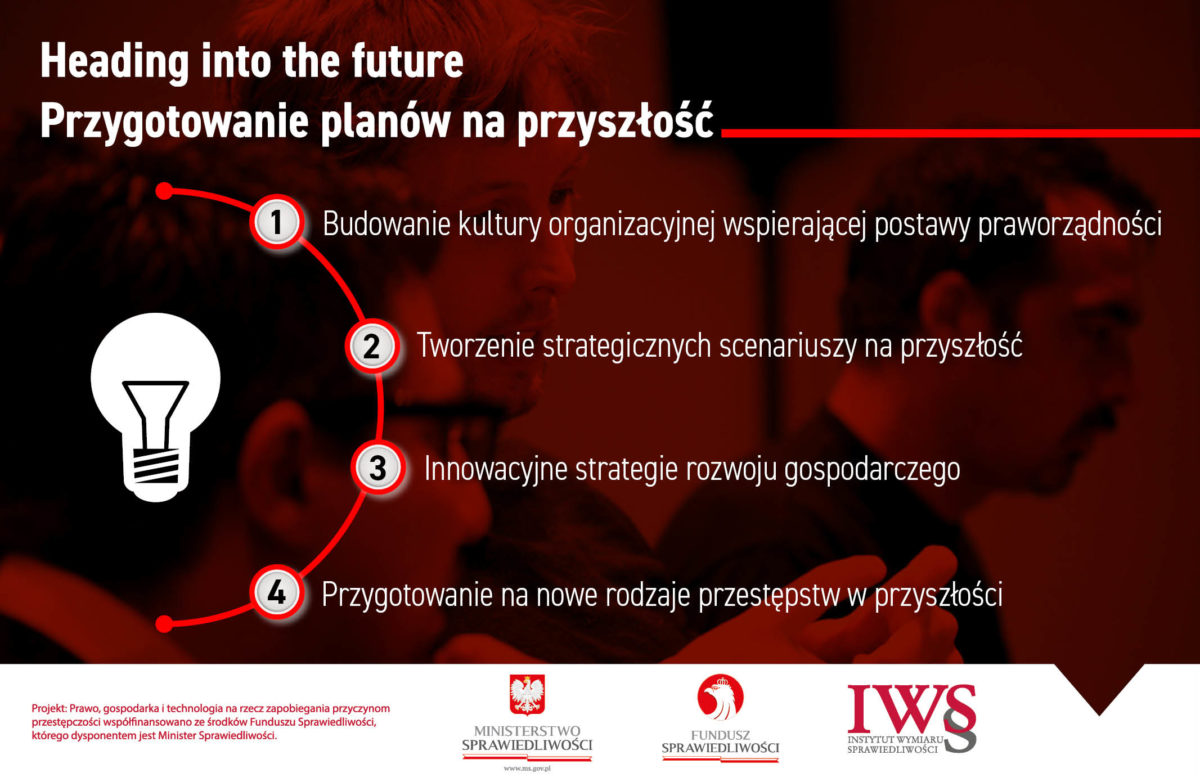Heading into the future Scientific Workshop
2018-12-06

On December 4-6, 2018, The Institute of Justice organized Heading into the future workshops , taking place as part of the “Law, economy and technology for preventing the causes of crime” project. The project implements assumptions related to the implementation of the latest legal and organizational solutions in the field of crime prevention.
The workshops were conducted by eminent specialists from renowned research centers – Paul Healy from Harvard Business School, Roland Stephen from Stanford Research Institute (SRI International) and Mireia Las Heras, Mike Rosenberg and Antonino Vaccaro from IESE Business School. They were attended by people holding the most important functions in their organizations, who appreciated their world-class level both in terms of content and organization. The meetings were held in the format of four two-day workshops, arranged in thematic blocks covering the financial area, energy area, insurance area and the area of human resources management in the organization. The work was based on the case study method carried out in accordance with the standards in force at Harvard Business School and IESE Business School, as well as the unique in Poland combination of scientists’ research workshop and the knowledge and experience of practitioners participating in the project, thanks to which the obtained results were based on practical knowledge available only people dealing with management in selected thematic areas, while maintaining academic rigor. This has enabled practitioners to better understand the complex organizational and legal situations they face on a daily basis.
Heading into the future focuses on the issues of preparing plans for the future in specific areas. In addition, he deals with the issues of building an organizational culture supporting the attitudes of the rule of law, creating strategic scenarios for the future and innovative development strategies for individual areas. Particular attention has been given to preparing for new types of crime in the future. The interdisciplinary approach to the problem of crime prevention allowed for a broad analysis of the presented matters and constituted the basis for further work on the project.








